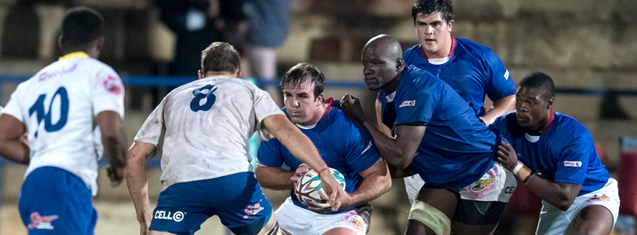Latest News Archive
Please select Category, Year, and then Month to display items
12 October 2020
|
Story Arina Engelbrecht
|
Photo Supplied
 Arina Engelbrecht from Organisational Development and Employee Well-being believes physical activity has a number of benefits for one’s health, including stress relief.
Arina Engelbrecht from Organisational Development and Employee Well-being believes physical activity has a number of benefits for one’s health, including stress relief.
Being physically active plays a big role in preventing the development of mental-health problems and in improving the quality of life of people experiencing mental-health problems.
Treatment for depression
Physical activity can be an alternative treatment for depression. It can be used as a stand-alone treatment or in combination with medication and/or psychological therapy. It promotes all kinds of changes in the brain, including neural growth, reduced inflammation, and new activity patterns are formed that promote feelings of calm and well-being. It releases endorphins – powerful chemicals in the brain that energise your spirit and make you feel good.
Physical activity can be very effective in relieving stress. Research in adults has found that physically active individuals tend to have lower stress levels compared to individuals who are less active. It also leads to improved sleep. When a person sleeps better and feels more rested, overall quality of life improves. They cope better with daily life stressors.
Reduce Alzheimer's risk
Regular physical activity can reduce your risk of developing Alzheimer's disease by up to 50%. It can also slow down further deterioration in those who have already started to develop cognitive problems. It stimulates the brain’s ability to maintain old connections as well as to make new ones.
A study asked people to rate their mood immediately after periods of physical activity (e.g. going for a walk/run, cycling, doing housework) and periods of inactivity (e.g. reading a book or watching television). Researchers found that participants felt more content, more awake, and calmer after being physically active compared to after periods of inactivity.
In conclusion, people who are physically active feel a sense of well-being, feel more energetic throughout the day, sleep better at night, have sharper memories, and feel more relaxed and positive about themselves and their lives.
“Being physically active not only changes your body, it changes your mind,
attitude, and your mood.” – Arina Engelbrecht
Shimlas start Varsity Cup victoriously!
2014-02-04

Kovsies’ Shimlas gave the University of the Witwatersrand (Wits) a fierce welcome in their first Varsity Cup match on Monday night at Shimla Park in Bloemfontein.
Shimlas beat Wits 31–15 in the first round of the 2014 Varsity Cup Rugby tournament. The home side took the lead on the scoreboard early on with two converted tries.
Wits, who still played in the Varsity Shield tournament last year, managed to score a try seven minutes before halftime. However, a penalty kick by Shimlas’ fly-half, Gouws Prinsloo, put the Kovsie team in an 18–5 lead at the end of the first half. The second half saw both sides score two more tries, attaining a four-try bonus point on the log for Shimlas.
Proud Shimla captain, Elandre Huggett, was named the Player that Rocks after the match. Shimlas will face NWU Pukke in this coming Monday’s round two fixtures at the Fanie du Toit Stadium in Potchefstroom on 10 February 2014.
Shimla scorers
Tries: Oupa Mohoje, Divandre Strydom, Fanie van der Walt, Tienie Burger
Conversions: Gouws Prinsloo (3)
Penalties: Prinsloo (1)